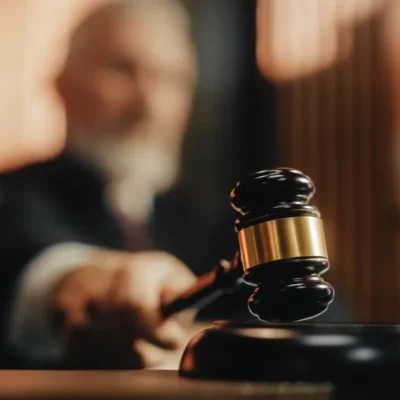Let’s talk about a topic that often sparks debate: topless in public and nudity. It’s a hot issue that many people are curious about, especially when it comes to the legal side of things.
In New South Wales, laws about public nudity and going topless can be confusing. What counts as obscene? Where can you legally be topless? And what about specific situations like breastfeeding or sunbathing topless? We’ll answer all these questions and more, helping you understand what you can and can’t do in public spaces.
The Controversy Around Obscene Nipples
The Free the Nipple movement, started by US filmmaker Lina Esco in 2012, challenges the idea that female toplessness is inherently obscene. Esco’s bold act of running through New York City topless highlighted the double standards in laws and social norms regarding women’s bodies. According to her, the campaign is about gender equality, not just the right to go topless.
The goal of the movement is to change laws that prevent women from being topless in public and to address the double standards on social media platforms that censor female nudity but allow male toplessness. While some US states permit women to be topless in the same places as men, around 35 states still make a gendered distinction about what counts as obscene exposure.
High-profile celebrities like Amber Rose, Miley Cyrus, and Cara Delevingne have supported the movement, but not everyone agrees with it. Writer Jessica Megarry criticised it in 2015, arguing that its focus seems more on the right to post topless selfies than on broader feminist goals. She believes it does not challenge male dominance but instead encourages young women to undress for male attention.
Whether you support or oppose the Free the Nipple campaign, the laws about female toplessness in New South Wales might surprise you.
Obscene Exposure Offences in New South Wales
Obscene exposure is a serious offence in New South Wales. It falls under section 5 of the Summary Offences Act 1988 (NSW). If found guilty, you could face up to 6 months in prison or a fine of 10 penalty units. Currently, one penalty unit is worth $110, so the maximum fine is $1,100.
To convict someone of obscene exposure, the prosecution must prove three things beyond a reasonable doubt:
- You were in or visible from a public place or school.
- You exposed yourself in an obscene manner.
- You did this intentionally.
Understanding these elements is crucial, as they determine whether an act of public nudity qualifies as an offence.
Defining a Public Place in New South Wales
So, what exactly is a public place? According to the law, a public place is any location open to or used by the public, whether you have to pay to be there or not. It can also be a place accessible only to certain groups of people.
This includes:
- Shopping centres and the stores inside them
- Restaurants, pubs, and clubs
- Sporting venues
What Does Obscene Mean?
Courts have defined it as actions that offend public sensibilities by violating current social standards.
A magistrate decides if something is obscene by looking at each case’s details. This offence often involves someone exposing themselves in public, whether or not a sexual act is involved.
Definition of ‘Wilfully’
Wilfully means doing something on purpose. For instance, if someone pulls your pants down and you quickly pull them back up, that’s not wilful. Similarly, if people see you naked through your window and you didn’t know you were visible from the street, that’s not wilful either.
Understanding the term “wilfully” is crucial because it affects whether an act of public nudity is considered an offence.
Exceptions to Public Nudity Laws
Did you know there are exceptions to public nudity laws in New South Wales? According to Section 633(6) of the Local Government Amendment (Nude Bathing) Act 1996 (NSW), there are specific beaches where you can legally swim naked.
These beaches include:
- Lady Bay (Lady Jane) Beach
- Cobblers Beach
- Obelisk Beach
- Werrong Beach
- Samurai Beach
These designated areas allow for nude bathing, so you can enjoy the sun and sea without worry.
Legal Defences for Obscene Exposure
Facing a charge of obscene exposure? There are legal defences available. You might argue duress or necessity as a defence.
If you present a valid defence, the burden shifts to the prosecution. They must then prove beyond a reasonable doubt that your defence doesn’t apply.
If they can’t do that, you’re entitled to an acquittal, meaning a not guilty verdict. Understanding these defences can be crucial in navigating such charges.
Understanding the Laws on Breastfeeding, Genital Exposure, and Female Toplessness
Let’s look at some specific scenarios: breastfeeding, genital exposure, and female toplessness.
Firstly, breastfeeding is protected under the Sex Discrimination Act 1984 (Cth), so it can’t be considered obscene.
On the other hand, exposing genitalia is usually seen as obscene by the courts.
Female toplessness is a bit more complex. It depends on the context. For instance, sunbathing topless at beaches, even those not designated for nude bathing, has become socially acceptable. So, as long as it’s done respectfully, it’s unlikely to be deemed obscene.
Police generally adopt a lenient approach to female toplessness in public, as long as it doesn’t cause significant disturbance. However, deliberately exposing breasts to shock or offend, especially around children, is more likely to be considered obscene and an offence.
Regulations on Private Property
While NSW police are generally tolerant of female toplessness in public, this doesn’t mean there’s an outright right to be topless everywhere (except for breastfeeding).
Private businesses and venues have the authority to enforce their dress codes, including prohibiting toplessness. If you refuse to comply and leave a private property, you could face legal consequences.
According to Section 4A of the Inclosed Lands Protection Act 1901 (NSW), if you stay and behave offensively on enclosed land after being asked to leave, you could be fined up to 10 penalty units, or $1,100.
So, is the nipple free in NSW? Mostly, yes, but be mindful of private property rules and community standards to avoid potential issues.
Navigating the Complexities of Public Nudity Laws in New South Wales
Public nudity and toplessness laws in NSW can be complex. While breastfeeding is always legal, other forms can lead to legal trouble.
Always respect private property rules and community standards to avoid unnecessary complications. Public nudity laws may seem complex, but with the right knowledge, you can navigate them effectively.
If you have any questions or need legal advice regarding topless in public and related laws in New South Wales, don’t hesitate to contact KPT Legal. We’re here to help you understand and comply with the law.
Disclaimer: This is intended as general information only and not to be construed as legal advice. The above information is subject to changes over time. You should always seek professional advice beforetaking any course of action.














